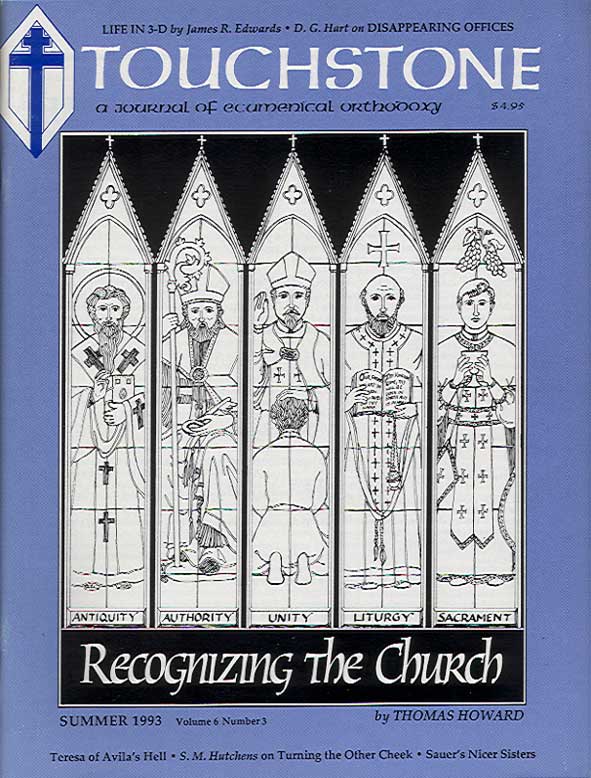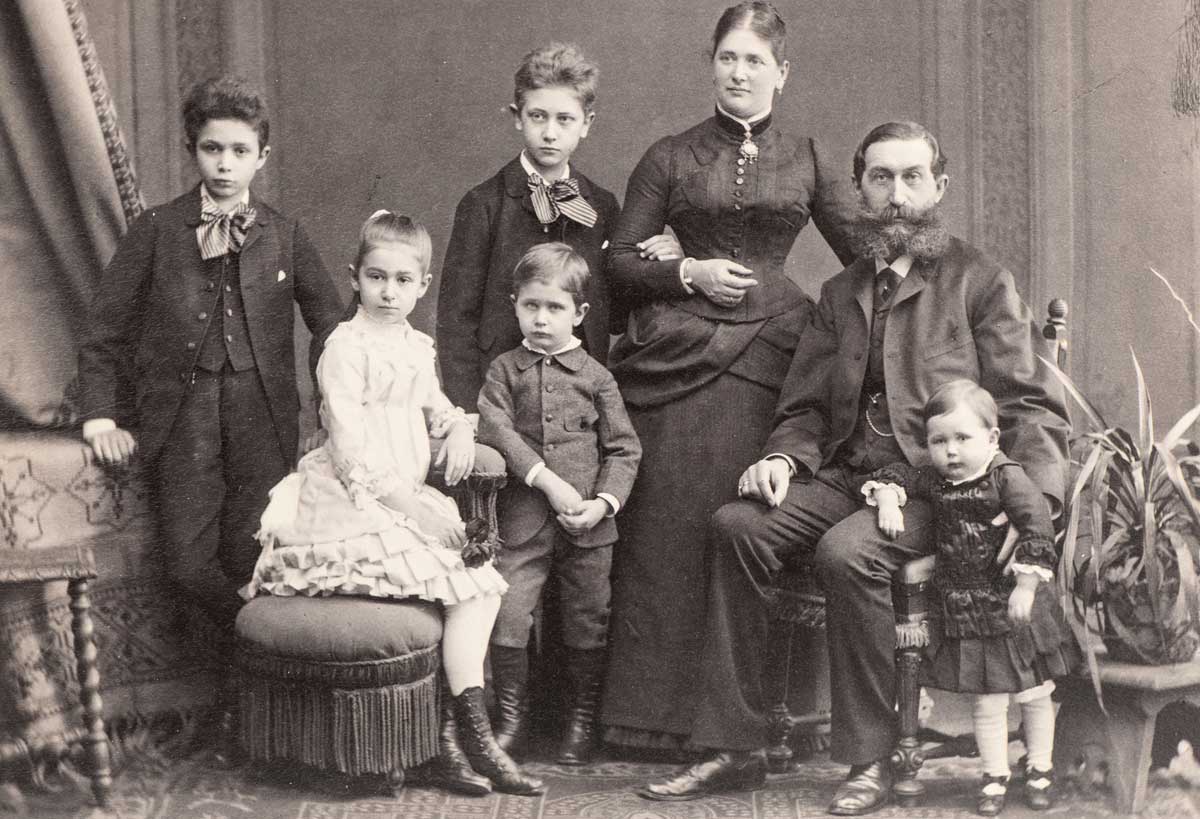Whatever Happened to Office?
Ordination and the Crisis of Leadership in American Protestantism
by D. G. Hart
It is hard for some in mainline Protestant churches to understand, but a few denominations like my own, the Christian Reformed Church (CRC), are still debating whether women should be allowed to serve as ruling or teaching elders (elders and pastors). For many on both sides it is strictly a question of being faithful to Scripture. Subordinationists (those who oppose women in office) rely heavily upon 1 Timothy 2 and 1 Corinthians 14, those passages that reflect the patriarchal patterns of first-century Greco-Roman culture. Ordinationists, in contrast, give much weight to the Apostle Paul’s egalitarian sentiments in Galations 3. Yet both sides also reflect the assumptions rooted in their socioeconomic status. Subordinationists tend to be older or from rural society and adhere to early modern views about the role of women and their function in the home—what some have called the cult of domesticity. Ordinationists more often than not reside in the suburbs, come from two-income families, and had their consciousness raised, if not shaped, by the arguments of the modern feminist movement.
Despite these differences, there is one thing that both sides have in common. It is silence about the nature and scope of the authority that the office of pastor or elder constitutes. Subordinationists, it would seem, have an easier case to make because much of their perspective depends upon a hierarchical understanding of human relationships. Whether in the church, the household, or society, generally subordinationists stand for a conception of authority that places power and responsibility in the God-ordained and male-dominated offices of magistrate, clergyman, and father. Yet, one scours the writings of conservatives in vain for mention of the O-word, ordination. Subordinationists will gladly talk about the authority of the Bible but rarely come clean about the hierarchical idea of office that the Bible and its culture seem to assume. Nor are they willing to argue—as pre-revolutionary Protestants used to—that the authority of particular offices and vocations is essential to social order and the restraint of evil. Rather, most contemporary Protestants are democrats who believe that individuals should be free to pursue their own economic well-being, order their own lives, and discover their own happiness. Thus, with some irony, subordinationists have accepted virtually all the premises of modernity, premises which undermine the very notions of office and ordination they wish to defend in barring women from holding special office. But in this one area—as well as the role of women in the home—they cling to a pre-modern conception of ordination and office.
Such contradictions are no less evident on the ordinationist side. While progressive Protestants have come to terms with the egalitarian and functional views of authority and power that modern society encourages—even to the point of finding these very same ideas in the Bible, a remarkably pre-modern if not ancient text—they have not explained why the church should hold on to such antiquated notions as ministerial office and ordination. The egalitarian ethic teaches that all individuals are equal and one hears much about the diversity of gifts and ministries that all of God’s people possess. Yet if all are equal, why should we set some apart or give authority to a particularly small segment of the believing community? Wouldn’t it make more sense to abolish entirely the office of minister or elder or at least ordain everyone for the special gift they possess and ministry they perform? The way many ordinationists finesse this question is to talk about service. Clergy are not ordained to be rulers. Rather, there is a better understanding of ministerial office—through the ideal of service. (Actually the idea of leader as servant is at least as old as the Rotarians, Lions and Kiwanis.) The minister or elder does not wield power in an authoritarian way but rather abases himself or herself to serve—much like Christ did—for the greater good of the Christian community. The model for this service is Christ’s phrase: “the least shall be first.” The suffering servant is certainly an appealing ideal, but one that rarely characterizes denominational assemblies where only the use of Robert’s Rules of Order provides a modicum of order, and where bureaucrats moan about the slightest drop in budgetary allocations.
Though it may be behind the times by about three decades, the debate in the CRC over the ordination of women reflects a profound crisis within historically white American Protestant denominations about the nature and function of ordination. As timid as the Christian Reformed are about connecting the office of minister to an older conception of ordination, mainline and evangelical Protestants also avoid defining the precise nature and function of the ministerial office. The following quotation depicting the decline in ministerial authority within the CRC has been true of Protestant clergy in general for some time.
These older ministers, whose spiritual authority was enormous and sometimes tyrannical, had fixed minds. Their influence is sometimes hard to understand now when every Tom, Dick and Sadie with a strong D average in high school has the right to expressed opinion. Then, when preachers said, “Thus saith the Lord,” they were inclined to believe it.1
Few Protestants would deny that the sense of a minister speaking for God—and the accompanying sense that attending church was a duty with grave consequences—has been lost. Some would undoubtedly welcome the change to egalitarian forms of leadership that would be accessible and hospitable to the needs and demands of the laity. Yet, two separate developments within the Protestant household tell us that all is not well, developments that reflect efforts to rehabilitate the role of the clergy but, as is typical of modern times, do it without mentioning adequately or wrestling with what it is that happens in the service of ordination.
Within the mainline Protestant churches there is much talk about decline, both in real numbers and in less tangible forms of cultural clout. Some of these estimates may either be a bit too dour or are not sufficiently attentive to long term historic trends.2 Yet most would agree that mainline Protestant stock in recent decades has lost considerable value. Various medicines have been prescribed for the church’s return to health. Plans for church growth, more theology, less social activism, and greater diversity all come to mind. The Hartford Seminary Executive Seminar for church leaders is an effort to rehabilitate further the American church. The program, which was funded by the Lilly Endowment and concludes at the end of 1993, is designed to bring together younger church and interdenominational leaders to examine the crises and prospects confronting religious bodies in America. Participants in the project read a variety of manuals in business management and current affairs, and develop proposals to make themselves more effective as leaders of religious organizations. The implicit rationale in this seminar is that a future generation of leaders will be better equipped to guide the churches back into a period of prosperity, relevance and influence.
Not only have programs been devised and recommended by the mainline churches and their supporting institutions, but a variety of authors have explored the crisis of leadership within American churches. One such book is Jackson W. Carroll’s As One With Authority. Carroll argues for a model of ministerial authority rooted in “reflective-leadership,” a dialogical approach to Christian living that is based upon a high degree of trust and interaction between clergy and laity. While Carroll pays some attention to the sacramental character of the ministry (i.e., the minister as God’s representative), the focus of the book is on how ministers can function better as reflective leaders. The clergy, according to this view, are still experts or professionals, but their expertise is less scientific, less bound by iron-clad laws of cause and effect, and ultimately more humane because they are more cognizant of the contingencies of daily existence. Carroll’s book, and works similar to it, give the impression that clergy will become better leaders if they become more effective professionals.
The model of minister as professional is rooted in developments almost a century old within American Protestantism. As Craig Dykstra and James Hudnut-Beumier have demonstrated in an astute article on the structure of American denominations from the late eighteenth to the twentieth centuries, denominational governance has witnessed an organizational revolution. National church bodies went from constitutional confederacies (1780-1870) to corporations (1870-1960) to regulatory agencies (1960 to the present). In the early period the character of denominational life was local. Denominational structures served chiefly the needs and ministry of the local congregation. Since 1870 the nature and purpose of denominations have changed dramatically. The focus shifted from the local congregation to the national body that has its own functions and duties, ones that were known to be different from the work of the local church and, in some cases, more important. Also, what this change accomplished was to create a large bureaucratic structure filled by church executives whose function was to manage the programs of the church. As these programs and agencies grew they took on a life and culture of their own that was different from the life and culture of the local church but very similar to the corporate culture that was developing simultaneously in American business. The church became more a corporation than a household of faith.3
Not surprisingly, strategies for enhancing the authority of the modern denomination use the language of professionalism and expertise, even applying these models of leadership to the work of the local minister. The managers of Protestant corporations turn increasingly to the literature of scientific management produced by America’s corporate executives for help with everything from improving morale at the national office to making the local sales representative, the pastor, a more productive and effective agent. Yet there is a danger to corporate models for the church contained in the literature on management. As a recent book on the bureaucratic therapies of management gurus like Peter Drucker shows, recommendations for greater participation and harmony within the corporation often obscure the strategies of powerful executives intent on preserving their own authority and status.4
D. G. Hart works for the Intercollegiate Studies Institute (www.isi.org) and is an elder in the Orthodox Presbyterian Church. He is the author of A Studen't Guide to Religious Studies (ISI Books) and John Williamson Nevin: High Church Calvinist (P&R Books).
subscription options
Order
Print/Online Subscription

Get six issues (one year) of Touchstone PLUS full online access including pdf downloads for only $39.95. That's only $3.34 per month!
Order
Online Only
Subscription

Get a one-year full-access subscription to the Touchstone online archives for only $19.95. That's only $1.66 per month!
bulk subscriptions
Order Touchstone subscriptions in bulk and save $10 per sub! Each subscription includes 6 issues of Touchstone plus full online access to touchstonemag.com—including archives, videos, and pdf downloads of recent issues for only $29.95 each! Great for churches or study groups.
Transactions will be processed on a secure server.
more on america from the online archives
more from the online archives
calling all readers
Please Donate
"There are magazines worth reading but few worth saving . . . Touchstone is just such a magazine."
—Alice von Hildebrand
"Here we do not concede one square millimeter of territory to falsehood, folly, contemporary sentimentality, or fashion. We speak the truth, and let God be our judge. . . . Touchstone is the one committedly Christian conservative journal."
—Anthony Esolen, Touchstone senior editor













